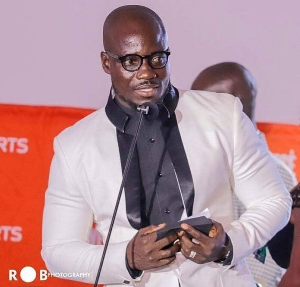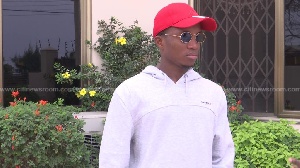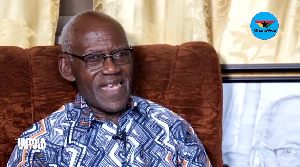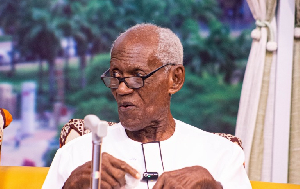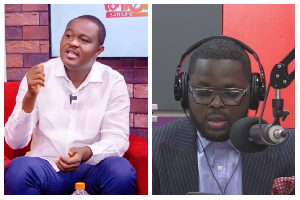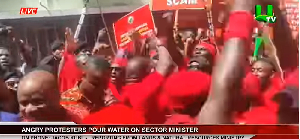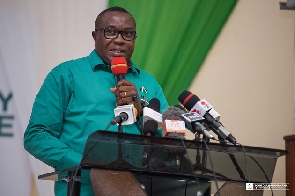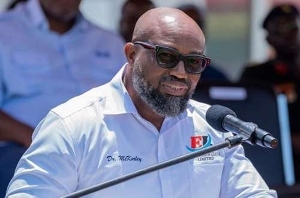Accra (Greater Accra), 25 Feb. '99 - Squadron Clend Sowu,-NDC Anlo, said yesterday that this year's budget objectives relative to Vision 2020 will be achieved if Parliament monitors and constantly evaluates its implementation. He described the budget, which covers a three-year period (1999-2001), as "a historic budget and a long-overdue dream come true". Sq. Ldr. Sowu noted that for the first time, Parliament is debating for approval an "input-output" budget which indicates how well resources are being used and how far objectives are being met. He said the budget is not "a lame duck budget by a lame duck government", as a member of the minority group would want Ghanaians to believe. "The budget, a medium-term expenditure framework (MTEF), may have some faults, but we all have to help fine tune it to minimise mismanagement, corruption and waste in the system". Sq. Ldr Sowu noted that even though the 1998 budget performed well, average Ghanaians did not feel the good performance in their pockets but added that at the infrastructure phase of development of any economy, it is mainly contractors who have a positive feel in their pockets. "I agree that although the economy is doing well, we can do better so that we move to an efficient and effective production phase that will give us an accelerated growth and development. "It is then that we will all have a positive feel in our pockets", he said Mr Mike Hammah, NDC-Effutu, said the macro-economic targets set in the 1999 budget statement "are realistic, specific, measurable, achievable and time-bound. "They are premised on quantified purposes, not pious aspirations and have been arrived at by being subjected to shock analysis and macro- economic policy interrogations, using fiscal and monetary instruments." Mr Hammah, who is also Deputy Minister of Roads and Highways, said he found it rather unfortunate the assertion by Dr Kofi Apraku, the Minority Finance Spokesman, that the budget does not in any way, address the country's unemployment problem. He said within the two years of the implementation of the Free Zones Programme, which aims at promoting Ghana as a trade and investment gateway to the West African sub-region, 4,000 jobs have been created with backward and forward linkages to agriculture and industry. The government has recently signed a 50 million-dollar agreement with the World Bank to improve infrastructure and utilities in limited geographical areas such as the Tema Export Processing Zone, to support the private sector in job-creation, among other objectives. "Mr Speaker, I wish therefore, to advise our colleagues on the other side of the House to at least, acknowledge the modest achievements so far by the NDC government", he said and urged all Ghanaians, irrespective of their political affiliations, to play a meaningful role in moving the country forward. Mr Alex Kwaku Korankye, NPP-Asante-Akim South, said if Ghana is to accelerate its economic growth as envisaged in "Vision 2020", then, the Ministries of Lands and Forestry and Food and Agriculture must vigorously pursue reforms in the land sector. He said land is fundamental to agriculture which constitutes the major source of income for more than 60 per cent of the population as well as contributing to about 40 per cent of the Gross Domestic Product (GDP) but noted that the land tenure system has been a major stumbling block to increased agricultural production. Mr Korankye said since land is fundamental to agriculture, there is the need to periodically review the working rules of the land tenure policy to modify the conditions to respond to the changing requirements of agriculture and other modes of land utilisation. Mrs Grace Coleman, NPP-Effiduase Asokore, said she was grateful that for the first time, the country has a forward-looking budget and expressed the hope that at the end of its three-year period, targets set would have been achieved to meet the aspirations of Ghanaians. She said the budget, which is a medium-term expenditure framework, is laudable because it has objectivity, but added that if it fails to address the problems of unemployment, housing and health care delivery, for instance, then, "we are going to have more problems". Mr Seidu Adamu, NDC-Bibiani, said the government has embarked upon a serious reconstruction after several years of decay and that Ghanaians, with time, will reap the benefits of such endeavours. Mr J.K. Ackah, NDC-Aowin-Suaman, said there is no single budget anywhere in the world that can satisfy the aspirations of all the people adding that the objectives of the budget could only be achieved if all Ghanaians work purposefully together towards this goal. Mr Solomon Terkper, NDC-Upper Manya, said that some members of the Minority Group had not criticised the budget constructively but added that the budget objectives would be meaningless if they are not supported with adequate funding, through massive revenue mobilisation
Accra (Greater Accra), 25 Feb. '99 - Squadron Clend Sowu,-NDC Anlo, said yesterday that this year's budget objectives relative to Vision 2020 will be achieved if Parliament monitors and constantly evaluates its implementation. He described the budget, which covers a three-year period (1999-2001), as "a historic budget and a long-overdue dream come true". Sq. Ldr. Sowu noted that for the first time, Parliament is debating for approval an "input-output" budget which indicates how well resources are being used and how far objectives are being met. He said the budget is not "a lame duck budget by a lame duck government", as a member of the minority group would want Ghanaians to believe. "The budget, a medium-term expenditure framework (MTEF), may have some faults, but we all have to help fine tune it to minimise mismanagement, corruption and waste in the system". Sq. Ldr Sowu noted that even though the 1998 budget performed well, average Ghanaians did not feel the good performance in their pockets but added that at the infrastructure phase of development of any economy, it is mainly contractors who have a positive feel in their pockets. "I agree that although the economy is doing well, we can do better so that we move to an efficient and effective production phase that will give us an accelerated growth and development. "It is then that we will all have a positive feel in our pockets", he said Mr Mike Hammah, NDC-Effutu, said the macro-economic targets set in the 1999 budget statement "are realistic, specific, measurable, achievable and time-bound. "They are premised on quantified purposes, not pious aspirations and have been arrived at by being subjected to shock analysis and macro- economic policy interrogations, using fiscal and monetary instruments." Mr Hammah, who is also Deputy Minister of Roads and Highways, said he found it rather unfortunate the assertion by Dr Kofi Apraku, the Minority Finance Spokesman, that the budget does not in any way, address the country's unemployment problem. He said within the two years of the implementation of the Free Zones Programme, which aims at promoting Ghana as a trade and investment gateway to the West African sub-region, 4,000 jobs have been created with backward and forward linkages to agriculture and industry. The government has recently signed a 50 million-dollar agreement with the World Bank to improve infrastructure and utilities in limited geographical areas such as the Tema Export Processing Zone, to support the private sector in job-creation, among other objectives. "Mr Speaker, I wish therefore, to advise our colleagues on the other side of the House to at least, acknowledge the modest achievements so far by the NDC government", he said and urged all Ghanaians, irrespective of their political affiliations, to play a meaningful role in moving the country forward. Mr Alex Kwaku Korankye, NPP-Asante-Akim South, said if Ghana is to accelerate its economic growth as envisaged in "Vision 2020", then, the Ministries of Lands and Forestry and Food and Agriculture must vigorously pursue reforms in the land sector. He said land is fundamental to agriculture which constitutes the major source of income for more than 60 per cent of the population as well as contributing to about 40 per cent of the Gross Domestic Product (GDP) but noted that the land tenure system has been a major stumbling block to increased agricultural production. Mr Korankye said since land is fundamental to agriculture, there is the need to periodically review the working rules of the land tenure policy to modify the conditions to respond to the changing requirements of agriculture and other modes of land utilisation. Mrs Grace Coleman, NPP-Effiduase Asokore, said she was grateful that for the first time, the country has a forward-looking budget and expressed the hope that at the end of its three-year period, targets set would have been achieved to meet the aspirations of Ghanaians. She said the budget, which is a medium-term expenditure framework, is laudable because it has objectivity, but added that if it fails to address the problems of unemployment, housing and health care delivery, for instance, then, "we are going to have more problems". Mr Seidu Adamu, NDC-Bibiani, said the government has embarked upon a serious reconstruction after several years of decay and that Ghanaians, with time, will reap the benefits of such endeavours. Mr J.K. Ackah, NDC-Aowin-Suaman, said there is no single budget anywhere in the world that can satisfy the aspirations of all the people adding that the objectives of the budget could only be achieved if all Ghanaians work purposefully together towards this goal. Mr Solomon Terkper, NDC-Upper Manya, said that some members of the Minority Group had not criticised the budget constructively but added that the budget objectives would be meaningless if they are not supported with adequate funding, through massive revenue mobilisation

